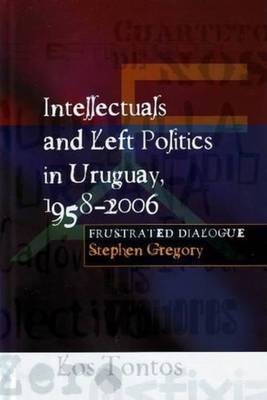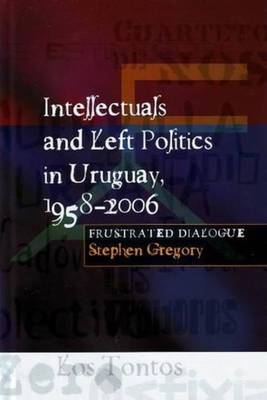
- Afhalen na 1 uur in een winkel met voorraad
- Gratis thuislevering in België vanaf € 30
- Ruim aanbod met 7 miljoen producten
- Afhalen na 1 uur in een winkel met voorraad
- Gratis thuislevering in België vanaf € 30
- Ruim aanbod met 7 miljoen producten
Zoeken
Intellectuals and Left Politics in Uruguay, 1958-2006
Frustrated Dialogue
Stephen Gregory
Hardcover | Engels
€ 69,95
+ 139 punten
Omschrijving
Beginning in the year Uruguayans elected a different party into government for the first time in nearly a century, the author examines intellectuals' role in the Uruguayan left's drive toward unity and effectiveness. Discussion focuses on fragmentation and impotence on the left; frustrated attempts at left unity in the 1960s; the creation of the centre-left Broad Front in 1971; and the defeat of all left endeavours and all dialogue in the 1973 military coup -- a prelude to a twelve-year dictatorship in which the military substituted themselves for intellectuals. The story continues in 1985, reversing the earlier trend in a record of dispersal and diversity. The author details the initial post-authoritarian anarchic cultural outburst -- part celebration, part frustration; intellectuals' role in the disputes that accompanied the Broad Front's move from democratic socialism to social democracy, and from opposition to government in 2004; and recent excursions into the long-standing Uruguayan obsession with its identity and viability as an independent nation. This book is essential reading for all those interested in interplay between intellectuals and politics in Latin America; changes in the Latin American left since the 1960s; and the leftward drift of elected governments in the Southern Cone.
Specificaties
Betrokkenen
- Auteur(s):
- Uitgeverij:
Inhoud
- Aantal bladzijden:
- 234
- Taal:
- Engels
Eigenschappen
- Productcode (EAN):
- 9781845192655
- Verschijningsdatum:
- 26/03/2009
- Uitvoering:
- Hardcover
- Formaat:
- Genaaid
- Afmetingen:
- 157 mm x 231 mm
- Gewicht:
- 476 g

Alleen bij Standaard Boekhandel
+ 139 punten op je klantenkaart van Standaard Boekhandel
Beoordelingen
We publiceren alleen reviews die voldoen aan de voorwaarden voor reviews. Bekijk onze voorwaarden voor reviews.











